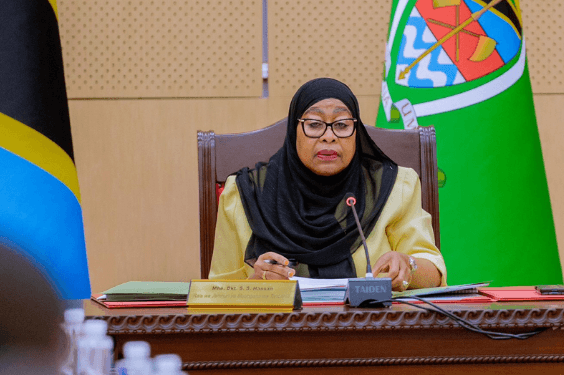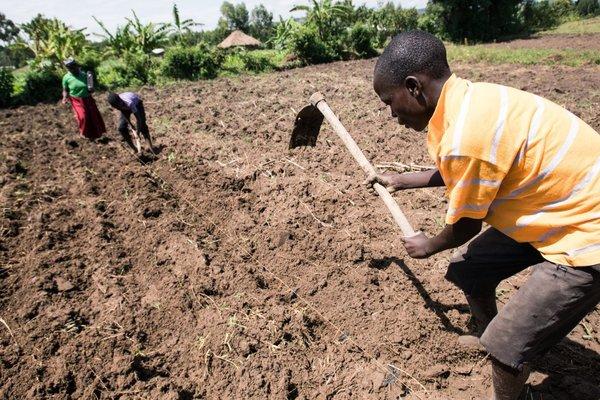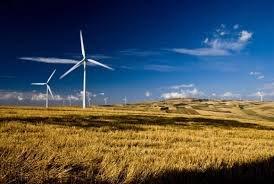Tanzania
Tanzania is a vibrant East African country known for its stunning landscapes, including Mount Kilimanjaro and the Serengeti. It boasts rich cultural diversity and a thriving wildlife tourism industry. With its Indian Ocean coastline, Tanzania also offers beautiful beaches and historic sites like Zanzibar

East Africa

945,087 sq km

EAT, UTC +3hours

67.4 million people (July 2024)

Swahili (Kiswahili), English

Islam, Christianity

Tanzanian Shillings (TZS)

Samia Suluhu Hassan

Brief
Tanzania, a vast and diverse country in East Africa, lies along the Indian Ocean and shares borders with several nations, including Kenya, Uganda, Rwanda, Burundi, the Democratic Republic of Congo, Zambia, Malawi, and Mozambique. Known as the “Cradle of Humankind,” Tanzania is home to some of the world’s most important archaeological sites, including Olduvai Gorge, where some of the earliest human fossils were discovered.
The area has long been inhabited by various indigenous groups, including Bantu-speaking peoples and the Maasai. Arab traders established coastal settlements such as Zanzibar as early as the first millennium CE, making the region an important hub for trade in gold, ivory, and spices. In the late 19th century, the area was colonized by Germany as part of German East Africa and later came under British control following World War I. Tanzania gained full independence in 1961 under the leadership of Julius Nyerere, who became the country’s first president and is widely revered for promoting unity and African socialism.
Today, Tanzania is one of Africa’s most politically stable countries, known for its cultural diversity and rich natural heritage. It is home to Mount Kilimanjaro, Africa’s highest peak, as well as the famed Serengeti National Park and the Ngorongoro Crater, both renowned for their spectacular wildlife. The semi-autonomous islands of Zanzibar add to the country’s allure, with historic stone towns and pristine beaches.
The country’s largest city and economic hub is Dar es Salaam, a bustling port on the Indian Ocean, while the official capital is Dodoma, located inland. Though modernization continues to expand across Tanzania, traditional customs, music, and vibrant local markets remain central to daily life.
The beauty and abundance of Tanzania were famously described by naturalists and travelers, and its scenic landscapes, from savannahs to coastal shores, continue to attract visitors from around the world.
Photos

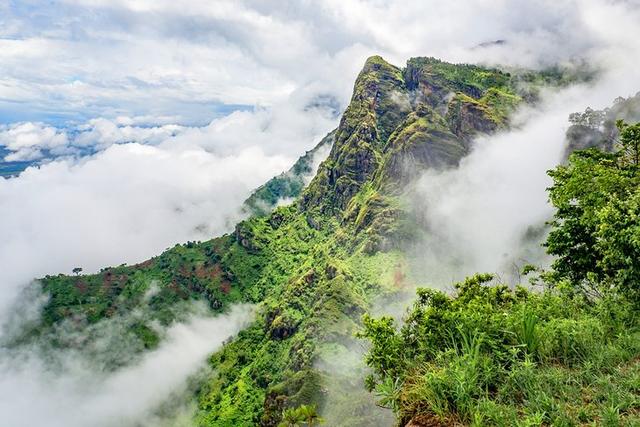


National Anthem
Cultural Life
Cultural milieu
Tanzania, located along the eastern coast of Africa, has long served as a meeting point for diverse cultures, traders, and civilizations. For centuries, its coastal regions were connected to trade networks that stretched across the Indian Ocean, bringing influences from Arabia, Persia, India, and beyond. The Swahili culture, which emerged from this rich blend of African, Arab, and Asian traditions, continues to define much of Tanzania’s coastal identity. In the late 19th century, German colonial rule began to shape the region, followed by British administration after World War I—both leaving lasting imprints on the nation’s political and educational systems. Today, Tanzania’s cultural identity remains deeply rooted in its African heritage, with Swahili serving as a unifying national language. Alongside this, there has been a growing appreciation for indigenous cultures and traditions, as communities work to preserve local languages, music, and customs throughout the country.
Daily life and social Customs
In Tanzania, social life revolves around family and community gatherings. Football is a national favourite, with many enjoying matches at home or local cafés. In cities like Dar es Salaam, people visit markets, restaurants, and cinemas for leisure. The coastline and islands such as Zanzibar offer beautiful beaches, where families often relax, swim, and enjoy seafood on weekends.



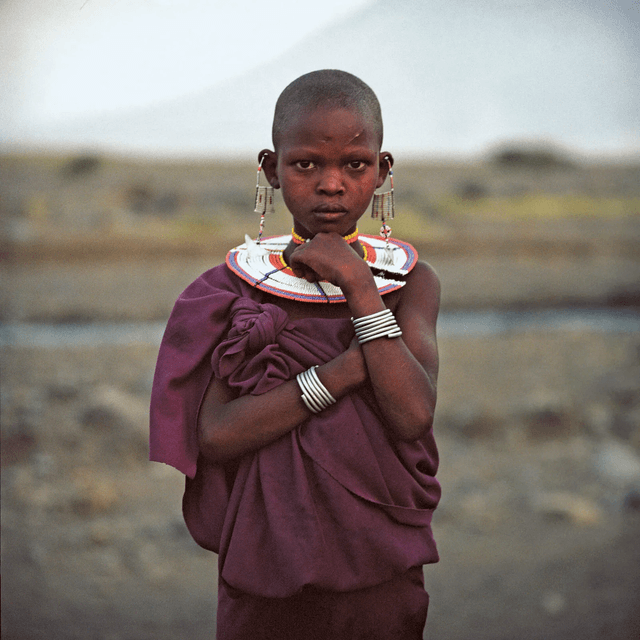

Cuisine
Tanzanian cuisine showcases a mix of African, Arab, Indian, and European influences, with fresh produce, grains, and spices from fertile regions like Mount Kilimanjaro and the coast. Common staples include ugali (maize or cassava porridge), rice dishes like pilau and biryani, and seafood along the coast and Zanzibar, often cooked with coconut milk and spices. Fruits such as mangoes, coconuts, and bananas are widely enjoyed.
Grilled meats like nyama choma (roast meat) and mishkaki (meat skewers) are popular, along with street foods like chapati. Vegetable dishes made with spinach, cassava, or pumpkin leaves are often cooked with groundnuts or coconut. Chai (sweet, spiced tea) is the national drink, with coffee also common. Traditional drinks like mnazi (palm wine) and ulanzi (fermented bamboo juice) are enjoyed in some areas, alongside local beers.

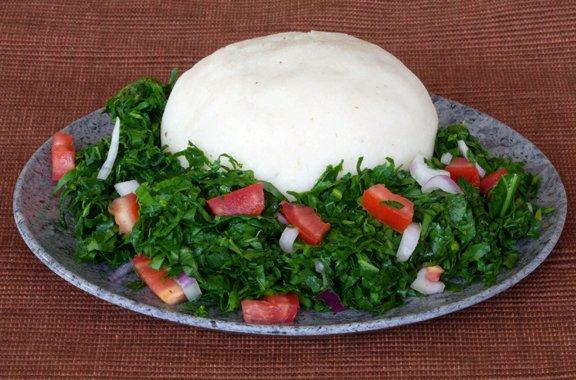

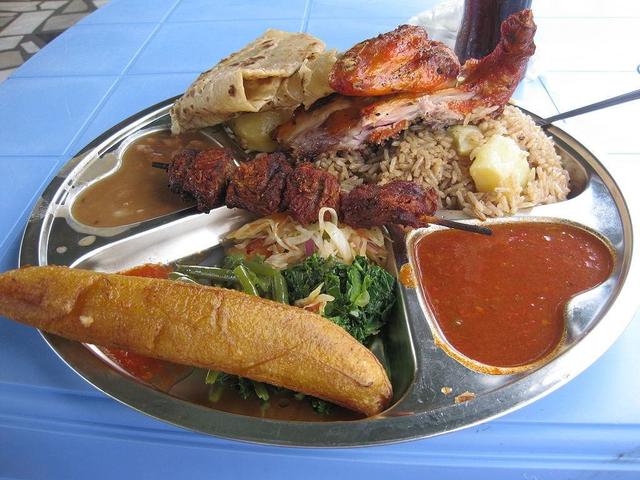
Music
Tanzanian music is rich and diverse, blending traditional African rhythms with coastal and Arabic influences. Instruments like drums, marimba, and traditional stringed tools are central to many styles. Taarab, popular along the coast and in Zanzibar, mixes Swahili melodies with Arabic and Indian sounds. Modern genres like Bongo Flava, which fuses hip-hop, R&B, and traditional Tanzanian music, are especially popular among the youth, reflecting contemporary life and social issues.
Arts and Crafts
Tanzanian literature is rooted in rich oral traditions, including folktales, poetry, and proverbs. Modern literature has expanded to include novels, plays, and essays, often written in Swahili, the national language, though English is also widely used. Writers such as Shaaban Robert, Euphrase Kezilahabi, and Abdulrazak Gurnah - winner of the Nobel Prize in Literature - have gained international recognition. Today, Tanzanian authors continue to explore themes of identity, history, and social change through both traditional and modern forms.




People
Ethnic Groups
Tanzania is home to more than 120 ethnic groups, with no single group dominating the population. Major groups include the Sukuma, Chagga, Haya, and Nyamwezi, among many others. Coastal areas, influenced by centuries of trade, reflect a blend of African, Arab, and South Asian heritage, particularly in Zanzibar. Historically, Arab traders and settlers left a lasting cultural and religious influence, while small communities of Asians and Europeans also live in urban areas. Despite this diversity, Swahili serves as a unifying national language, fostering a strong sense of national identity.
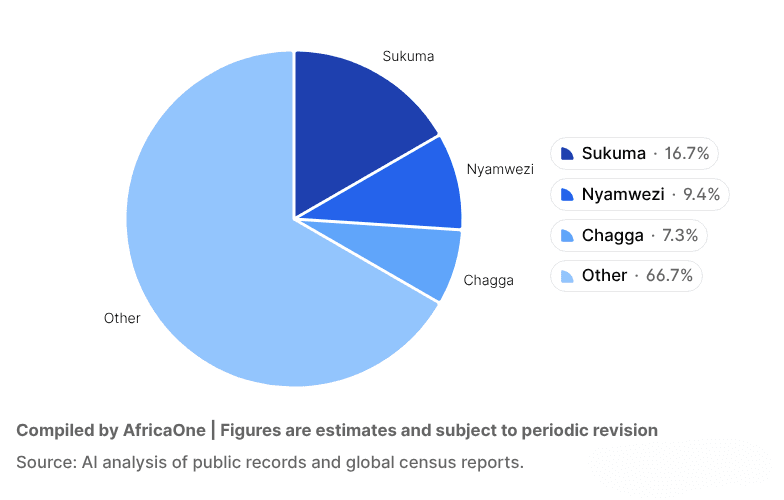
Religion
Tanzania is a religiously diverse country, with Islam and Christianity as the two main faiths. Islam is predominant along the coast and in Zanzibar, while Christianity is more common in the mainland’s interior regions. Both religions are practiced alongside traditional African beliefs, and many people incorporate aspects of both into their daily lives. Tanzania’s constitution guarantees freedom of religion, and the country is generally known for its religious tolerance and peaceful coexistence among different faiths.


Settlement Patterns
Settlement patterns in Tanzania largely follow its geography. The fertile highlands in the north and south support dense populations, with farming communities growing crops like maize, coffee, and bananas. Major cities such as Dar es Salaam and Arusha are located along the coast and in productive inland areas. The central plateau, with its drier climate, is more sparsely populated and mainly used for livestock grazing. Along the coast and islands like Zanzibar, settlements are linked to fishing, trade, and tourism.
Coastal Areas and Islands
Cities like Dar es Salaam, Tanga, and Zanzibar are major population centers focused on trade, tourism, and fishing. Settlements include a mix of traditional Swahili homes and modern buildings

Highlands & Rift Valley
Regions like Arusha, Kilimanjaro, and Mbeya have clustered farming villages on fertile slopes, growing crops like coffee, tea, and maize, alongside livestock keeping.

Inland Plateaus & Lake Zones
Areas around Lake Victoria and Lake Tanganyika have dense rural populations, focusing on fishing, farming, and trade. Towns like Mwanza and Kigoma serve as key trade hubs.

Urban Settlement
Tanzania’s cities, including Dar es Salaam and Dodoma, are growing rapidly. While cities offer modern services, many areas also have informal settlements with limited infrastructure.

Demographic Trends
Tanzania has a rapidly growing population, with a large percentage under the age of 15. Most people live in areas with fertile land, such as the northern highlands and coastal regions. Urbanization is increasing, with many moving to cities like Dar es Salaam in search of jobs and services. Migration abroad has been limited compared to some African countries, though some Tanzanians work or study in neighbouring nations and overseas.

Tourist Cities
Tanzania is home to several popular tourist cities known for their rich culture, history, and access to natural wonders. Dar es Salaam, the largest city, serves as the main gateway with vibrant markets, beaches, and cultural sites. Arusha is a hub for safaris and excursions to nearby national parks like Serengeti and Ngorongoro Crater. The island city of Zanzibar (Stone Town) enchants visitors with its historic architecture, spice tours, and beautiful beaches. Other notable destinations include Moshi, near Mount Kilimanjaro, and Mwanza on the shores of Lake Victoria, each offering unique experiences for travelers
ARUSHA CITY
Known as the safari capital of Tanzania, Arusha is the gateway to famous parks like Serengeti, Ngorongoro Crater, Tarangire, and Mount Kilimanjaro. The city also offers cultural sites, markets, and museums.
ZANZIBAR CITY (STONE TOWN)
Located on Zanzibar Island, this city is famous for Stone Town, a UNESCO World Heritage Site rich in Swahili, Arab, Indian, and European influences. Visitors enjoy historic sites, spice tours, and stunning beaches.
DAR ES SALAAM CITY
Tanzania’s largest city and economic hub, Dar es Salaam offers vibrant markets, beaches, museums, and lively nightlife. It also serves as the main departure point to Zanzibar and nearby islands.
MWANZA CITY
Situated along Lake Victoria, Mwanza is known for its scenic landscapes, unique rock formations, and cultural attractions. It also provides access to Rubondo Island National Park and other lake-based adventures.
Accommodations
Guest House
Guest houses in Tanzania offer affordable and comfortable accommodation, often with basic amenities like Wi-Fi, private rooms, and breakfast. Found in cities and near tourist spots. They provide a cozy, local experience and are ideal for budget travelers.



Resorts and Hotels
Resorts in Tanzania provide luxurious stays, often located near beaches, national parks, and scenic areas. They offer high-end amenities like pools, spas, fine dining, and guided tours, making them ideal for leisure, honeymoons, and family vacations.



Camping Sites
Camping sites in Tanzania offer adventurous and scenic stays, especially near national parks and mountains like Serengeti, Ngorongoro, and Kilimanjaro. They range from basic tented camps to more equipped sites with facilities like toilets, showers, and dining areas, ideal for nature lovers and budget travelers.
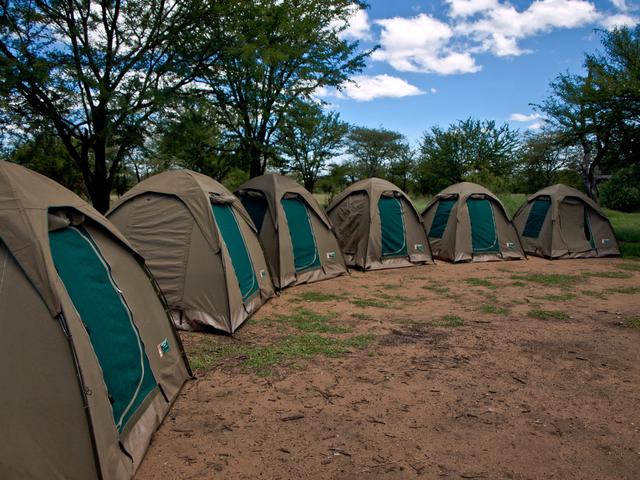


Visa Application for Tanzania
Documents required for the application process
- Completed Tanzania Visa Application Form
- Two Recent Passport-Sized Color Photographs
>White background
>Size: 4 x 3 cm
> Must clearly show facial features - Valid Passport
>Must be valid beyond the intended stay duration - Photocopy of Passport
>Pages showing personal details and passport validity - Proof of Address
>National ID, residence permit, or other official document confirming address - Recent Bank Statement (to show financial means)
- If Visiting Family or Friends:
>Official Letter of Invitation, legalized, with guarantee of covering medical and repatriation expenses - If Travelling Through a Tour Operator:
>Travel itinerary or booking confirmation from an authorized travel agency
>Or a recommendation letter from the Ministry of Tourism or Tanzania Tourist Board (TTB)
At the time of visa issuance, please provide the following documents
- Return Air Ticket
>With confirmed reservation - Valid Travel Insurance
>Must cover the entire period of stay - Proof of Accommodation
>Hotel booking confirmation or an official Travel Voucher - Visa Processing/Chancery Fees
>Payable as required
Economy in Tanzania
Agriculture, forestry, and fishing
Agriculture is the backbone of Tanzania’s economy, employing the majority of the population. Major crops include maize, rice, cassava, coffee, tea, cotton, and cashew nuts. The country also grows cloves and spices, especially in Zanzibar. Livestock farming is widespread, with cattle, goats, and sheep raised for meat, milk, and hides. Fishing, especially in Lake Victoria, provides food and employment, while forestry contributes timber and other forest products.
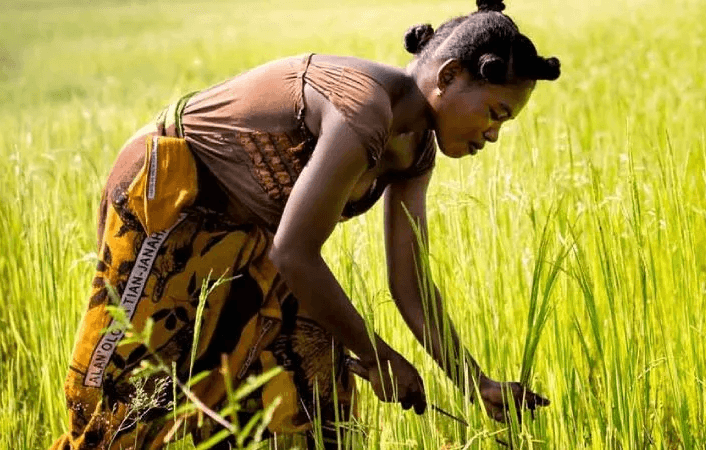
Resources and power
Tanzania is rich in mineral resources such as gold, diamonds, coal, and tanzanite (a gemstone unique to the country). It also produces natural gas, which has become an important energy source, reducing reliance on imported fuels. However, the country still imports oil to meet part of its energy demand. Hydropower is a key electricity source, along with growing investments in natural gas power generation.

Manufacturing
The manufacturing sector in Tanzania is growing steadily, focusing on food processing, beverages, textiles, leather products, and construction materials. Key industries include cement, sugar, tobacco, and chemicals. Efforts are being made to attract foreign investment and boost industries such as agro-processing and pharmaceuticals to support local production and exports.



Finance
Tanzania’s financial system is regulated by the Bank of Tanzania, which manages currency issuance, oversees monetary policy, and regulates banks. The Dar es Salaam Stock Exchange plays a growing role in raising capital for businesses. Mobile banking and digital finance services have expanded rapidly, increasing financial inclusion across the country.
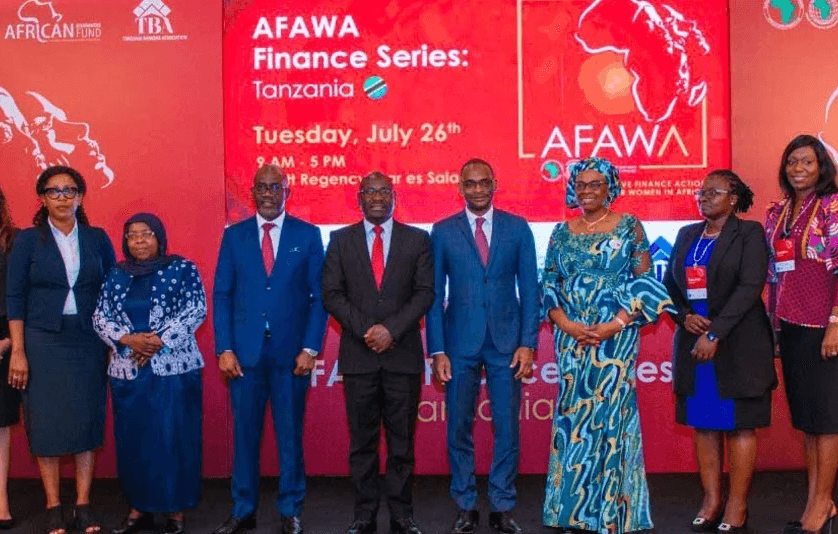
Trade
Tanzania’s main exports are gold, agricultural products (coffee, cashew nuts, tobacco, tea), and manufactured goods. Imports include machinery, vehicles, oil, and chemicals. Major trading partners include China, India, the UAE, and members of the East African Community (EAC). The country is also part of several regional trade blocs, promoting cross-border commerce.

Labour and taxation
A large portion of the workforce is employed in agriculture, with others in mining, industry, trade, and services. The informal sector such as street vendors and small-scale traders employs many. Unemployment remains a concern, particularly among youth. Taxes on income, goods, and services provide significant government revenue.

Transportation and telecommunications
Tanzania has an expanding transport network, including roads, railways, ports, and airports. Key ports like Dar es Salaam and Mtwara handle trade shipments. The country’s major airports, such as Julius Nyerere International Airport in Dar es Salaam and Kilimanjaro International Airport, serve both domestic and international flights. Telecommunications have grown rapidly, with mobile phones and internet widely used. Mobile money services are also popular, making digital transactions common even in rural areas.



